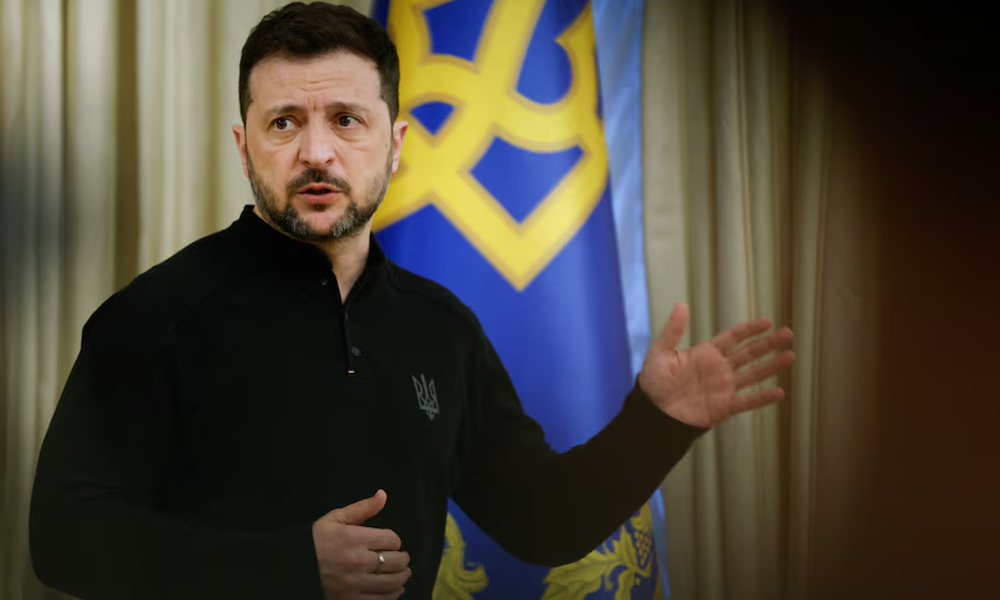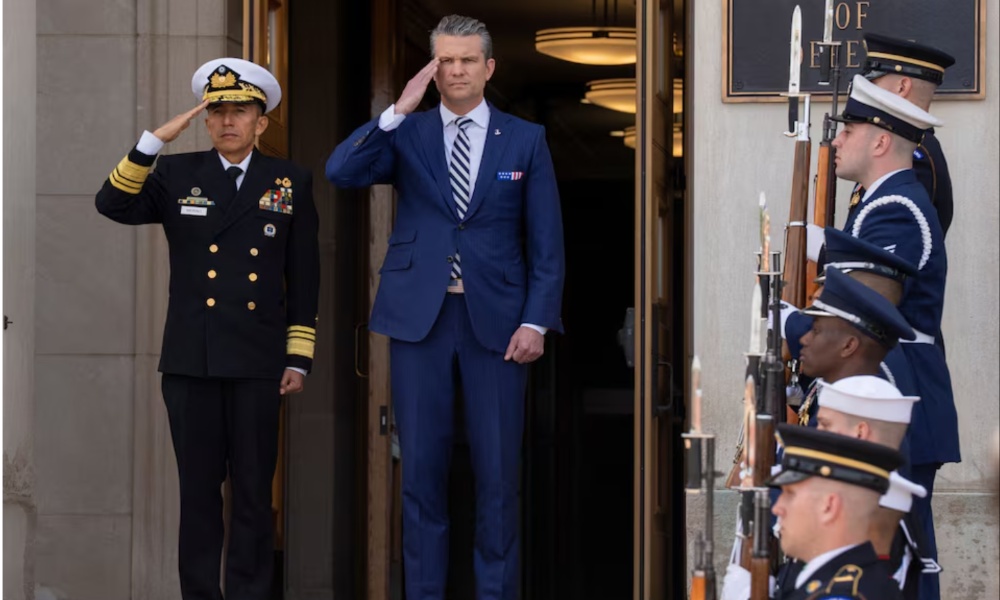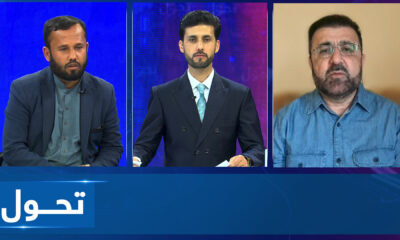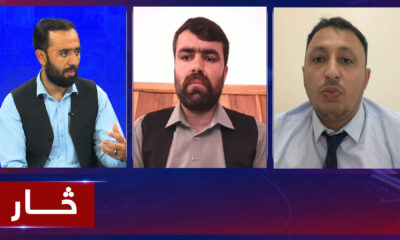World
India says situation with China fragile, dangerous in the Himalayan front

The situation between India and China in the western Himalayan region of Ladakh is fragile and dangerous, with military forces deployed very close to each other in some parts, Indian Foreign Minister S Jaishankar said on Saturday.
At least 24 soldiers were killed when the two sides clashed in the region in mid-2020, but the situation has been calmed through rounds of diplomatic and military talks, Reuters reported.
Violence erupted in the eastern sector of the un-de-marcated border between the nuclear-armed Asia giants in December but did not result in any deaths.
“The situation to my mind still remains very fragile because there are places where our deployments are very close up and in military assessment therefore quite dangerous,” Jaishankar said at an India Today conclave.
India-China relations cannot go back to normal, he said, until the border row is resolved in line with the September 2020 in-principle agreement he reached with his Chinese counterpart.
“The Chinese have to deliver on what was agreed to, and they have struggled with that.”
Although forces from both sides have disengaged from many areas, discussions are proceeding over unresolved points, Jaishankar said.
“We have made it very clear to the Chinese that we cannot have a breach of peace and tranquility, you can’t violate agreement and want the rest of the relationship to continue as though nothing happened. That’s just not tenable.”
Jaishankar said he discussed the situation with China’s new foreign minister, Qin Gang, on the sidelines of a meeting of the foreign ministers of the G20 nations hosted by India this month, Reuters reported.
Regarding India’s presidency of G20 this year, Jaishankar expressed hope that New Delhi can make the forum “more true to its global mandate”.
“The G20 should not be a debating club or an arena only of the global north. The entirety of global concerns need to be captured. We have already made that point very forcefully,” Jaishankar said.
Two G20 ministerial meetings in India in the last three weeks have been overshadowed by Russia’s 13-month invasion of Ukraine.
World
Ukraine ready to hold talks with Russia once ceasefire in place, Zelenskiy says
Zelenskiy said he would be happy to meet U.S. President Donald Trump later this week when they attend the funeral of Pope Francis along with other world leaders.

President Volodymyr Zelenskiy said on Tuesday that Ukraine would be ready to hold talks with Russia in any format once a ceasefire deal is in place and the fighting has stopped, Reuters reported.
The Ukrainian leader also told reporters at a briefing that a Ukrainian delegation meeting officials from Western countries in London on Wednesday would have a mandate to discuss a full or partial ceasefire.
“We are ready to record that after a ceasefire, we are ready to sit down in any format so that there are no dead ends,” Zelenskiy said in the presidential office in Kyiv.
“It will not be possible to agree on everything quickly,” he warned, noting numerous highly complex issues such as territory, security guarantees and Ukraine’s membership in the NATO military alliance.
He said that Ukraine would not recognise Moscow’s de jure control of the peninsula of Crimea as part of any deal as such a move would go against the Ukrainian constitution. Russia seized Crimea in 2014 and later annexed it.
Ukraine, he said, would be ready to partner with the United States to restore the work of the vast, Russian-occupied Zaporizhzhia nuclear power plant. There had been no such formal proposal from Washington about that, however, he added.
The talks in London, which are set to bring together officials from the United States, Britain, France, Germany and Ukraine, come amid a flurry of U.S.-led diplomatic efforts to find a way to end Russia’s war with Ukraine, read the report.
In an apparent change of plan, U.S. Secretary of State Marco Rubio will not be attending the talks in London, a State Department spokesperson said on Tuesday, adding that Washington’s Ukraine envoy General Keith Kellogg would attend.
Zelenskiy said he would be happy to meet U.S. President Donald Trump later this week when they attend the funeral of Pope Francis along with other world leaders.
Ukraine, Zelenskiy said, would also step up its diplomatic outreach this week and that he would meet South African President Cyril Ramaphosa, as well as the leaders of Spain, Poland and the Czech Republic.
World
Putin says he is open to direct peace talks with Ukraine
Zelenskiy, in his nightly video address, said Ukraine stood by its proposal for an end to attacks on civilian targets and was ready for any form of discussion to achieve it.

Russian President Vladimir Putin proposed on Monday bilateral talks with Ukraine for the first time since the early days of the war, and his Ukrainian counterpart Volodymyr Zelenskiy said Kyiv was eager to discuss a halt to attacks on civilian targets, Reuters reported.
While Zelenskiy did not respond directly to Putin’s proposal, he emphasized in his nightly video address that Ukraine “was ready for any conversation” about a ceasefire that would stop strikes on civilians.
The two leaders face pressure from the United States, which has threatened to walk away from its peace efforts unless some progress is achieved.
Russia and Ukraine have said they are open to further ceasefires after a 30-hour Easter truce declared by Moscow at the weekend. Each side accused the other of violating it.
Ukraine will take part in talks with the U.S. and European countries on Wednesday in London, Zelenskiy said. The discussions are a follow-up to a Paris meeting last week where the U.S. and European states discussed ways to end the more than three-year-old war, read the report.
Putin, speaking to a Russian state TV reporter, said fighting had resumed after the Easter ceasefire, which he announced unilaterally on Saturday. And Moscow, he said, was open to any peace initiatives and expected the same from Kyiv.
“We have always talked about this, that we have a positive attitude towards any peace initiatives. We hope that representatives of the Kyiv regime will feel the same way,” Putin told state TV reporter Pavel Zarubin.
Kremlin spokesman Dmitry Peskov, quoted later by Interfax news agency, told reporters: “When the president said that it was possible to discuss the issue of not striking civilian targets, including bilaterally, the president had in mind negotiations and discussions with the Ukrainian side.”
There have been no direct talks between the two sides since the early weeks after Russia’s February 2022 invasion, Reuters reported.
Zelenskiy, in his nightly video address, said Ukraine stood by its proposal for an end to attacks on civilian targets and was ready for any form of discussion to achieve it. Previously, the U.S. and Ukraine had framed this as a 30-day ceasefire.
“Ukraine maintains its proposal not to strike at the very least civilian targets. And we are expecting a clear response from Moscow,” he said. “We are ready for any conversation about how to achieve this.”
He said the London talks “have a primary task: to push for an unconditional ceasefire. This must be the starting point.”
Zelenskiy had earlier on Monday said an unconditional ceasefire would be “followed by the establishment of a real and lasting peace”.
Washington has said it would welcome an extension of the weekend truce. Zelenskiy said continued Russian attacks during the Easter ceasefire showed Moscow was intent on prolonging the war, read the report.
Zelenskiy also said that Ukraine’s forces were instructed to continue to mirror the Russian army’s actions.
“The nature of Ukraine’s actions will remain symmetrical: ceasefire will be met with ceasefire, and Russian strikes will be met with our own in defence. Actions always speak louder than words,” he said on X.
U.S. President Donald Trump and Secretary of State Marco Rubio both said on Friday that Washington could abandon the peace talks without progress within days. Trump struck a more optimistic note Sunday, saying that “hopefully” the two sides would make a deal “this week”.
Russia’s demands include Ukraine ceding all the land Putin claims to have annexed and accepting permanent neutrality. Ukraine says that would amount to surrender and leave it undefended if Moscow attacks again.
“President Putin and the Russian side remain open to seeking a peaceful settlement. We are continuing to work with the American side and, of course, we hope that this work will yield results,” Peskov told reporters.
World
Pentagon chief Hegseth shared sensitive Yemen war plans in second Signal chat, source says
The revelations of a second Signal chat raise more questions about Hegseth’s use of an unclassified messaging system to share highly sensitive security details

U.S. Defense Secretary Pete Hegseth shared details of a March attack on Yemen’s Iran-aligned Houthis in a message group that included his wife, brother and personal lawyer, a source familiar with the matter told Reuters on Sunday.
The revelations of a second Signal chat raise more questions about Hegseth’s use of an unclassified messaging system to share highly sensitive security details and come at a particularly delicate moment for him, with senior officials ousted from the Pentagon last week as part of an internal leak investigation.
In the second chat, Hegseth shared details of the attack similar to those revealed last month by The Atlantic magazine after its editor-in-chief, Jeffrey Goldberg, was included in a separate chat on the Signal app by mistake, in an embarrassing incident involving all of President Donald Trump’s most senior national security officials.
The person familiar with the matter, who was speaking on condition of anonymity, said the second chat included about a dozen people and was created during his confirmation process to discuss administrative issues rather than detailed military planning.
The chat included details of the schedule of the air strikes, the person said.
Hegseth’s wife, Jennifer, a former Fox News producer, has attended sensitive meetings with foreign military counterparts, according to images the Pentagon has publicly posted.
During a meeting Hegseth had with his British counterpart at the Pentagon in March, his wife could be seen sitting behind him.
Hegseth’s brother is a Department of Homeland Security liaison to the Pentagon.
The Trump administration has aggressively pursued leaks, an effort that has been enthusiastically embraced by Hegseth at the Pentagon.
Pentagon spokesperson Sean Parnell, without evidence, said that the media was “enthusiastically taking the grievances of disgruntled former employees as the sole sources for their article.”
“The Trump-hating media continues to be obsessed with destroying anyone committed to President Trump’s agenda. … We’ve already achieved so much for the American warfighter, and will never back down,” Parnell said in a statement on X.
White House spokesperson Anna Kelly said that “recently fired ‘leakers’ are continuing to misrepresent the truth to soothe their shattered egos and undermine the President’s agenda.
Democratic lawmakers said Hegseth could no longer stay in his job.
“We keep learning how Pete Hegseth put lives at risk,” Senate Minority Leader Chuck Schumer said in a post to X. “But Trump is still too weak to fire him. Pete Hegseth must be fired.”
Senator Tammy Duckworth, an Iraq War veteran who suffered grave injuries in combat in 2004, said that Hegseth “must resign in disgrace.”
A U.S. official at the Pentagon questioned how Hegseth could keep his job after the latest news.
The latest revelation comes days after Dan Caldwell, one of Hegseth’s leading advisers, was escorted from the Pentagon after being identified during an investigation into leaks at the Department of Defense.
Although Caldwell is not as well known as other senior Pentagon officials, he has played a critical role for Hegseth and was named as the Pentagon’s point person by the Secretary in the first Signal chat.
“We are incredibly disappointed by the manner in which our service at the Department of Defense ended,” Caldwell posted on X on Saturday. “Unnamed Pentagon officials have slandered our character with baseless attacks on our way out the door.”
Following Caldwell’s departure, less-senior officials Darin Selnick, who recently became Hegseth’s deputy chief of staff, and Colin Carroll, who was chief of staff to Deputy Defense Secretary Steve Feinberg, were put on administrative leave and fired on Friday. – REUTERS
-

 World5 days ago
World5 days agoThousands of protesters rally against Trump across US
-

 Latest News5 days ago
Latest News5 days agoPolio vaccination campaign launched in Afghanistan
-

 International Sports3 days ago
International Sports3 days agoIPL 2025: Robo-Dog ‘Champak’ explained
-

 International Sports4 days ago
International Sports4 days agoIPL 2025: 14-year-old Vaibhav Suryavanshi becomes youngest IPL player
-

 Latest News3 days ago
Latest News3 days agoAriana Afghan Airlines increases flights to China
-

 Latest News3 days ago
Latest News3 days agoChina invites various Afghan delegations to attend Shanghai forums
-

 World4 days ago
World4 days agoPentagon chief Hegseth shared sensitive Yemen war plans in second Signal chat, source says
-

 Latest News2 days ago
Latest News2 days agoAfghan-American appointed to lead US policy on Afghanistan






















